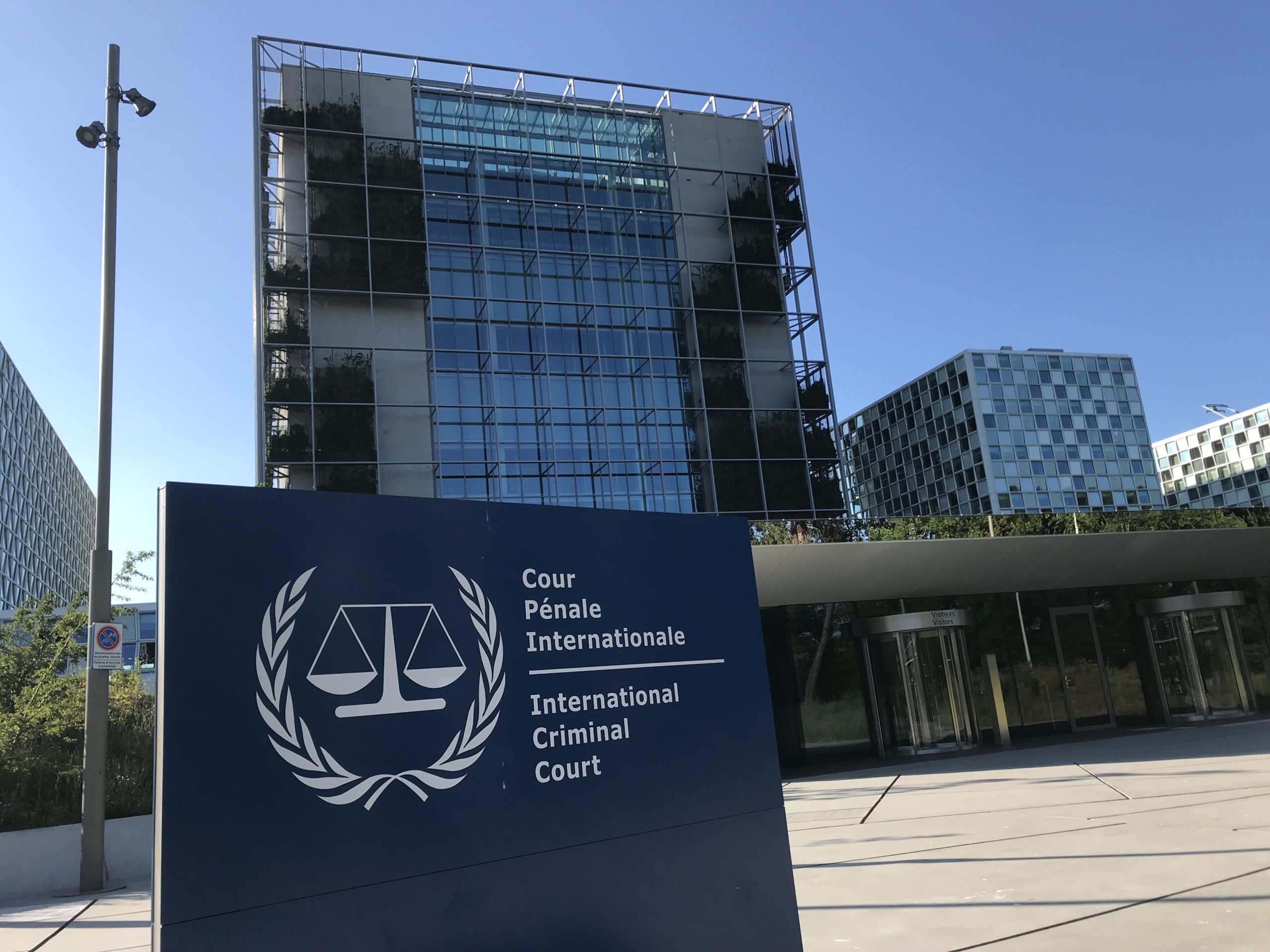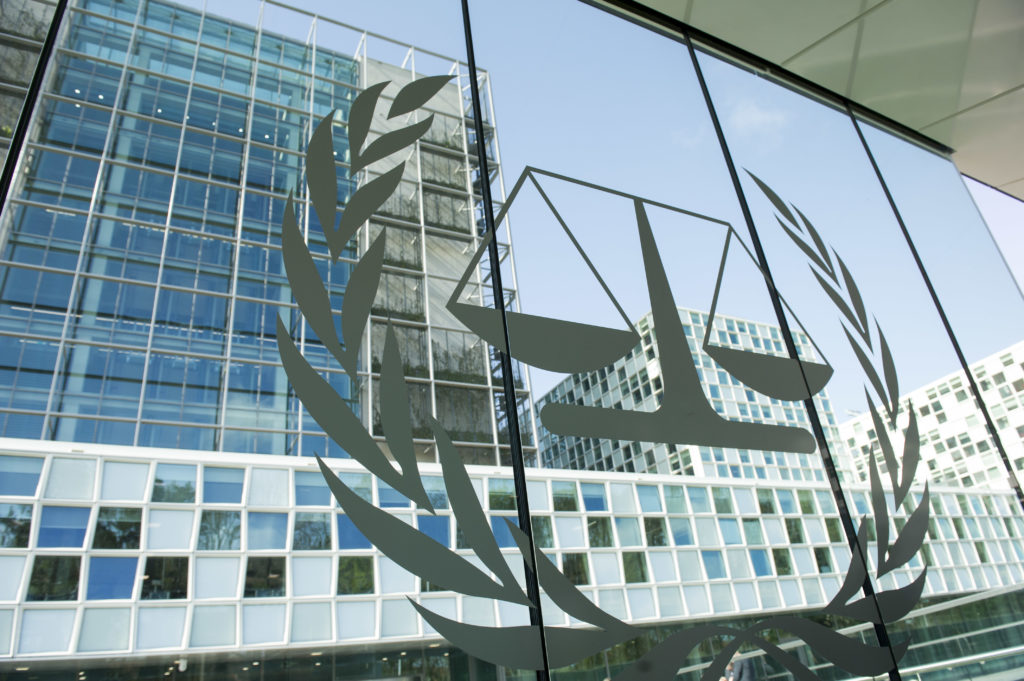
Núcleo de Estudos em Tribunais Internacionais
Faculdade de Direito
Universidade de São Paulo
Largo de São Francisco, 95
Sé – São Paulo, SP
01006-020

Today, 6 May 2021, Trial Chamber IX of the International Criminal Court (ICC), in a public hearing, delivered the sentence in the Ongwen Case. The judges sentenced Dominic Ongwen, by majority,[1] to 25 years in prison.
The Case against Dominic Ongwen stems from the situation in Uganda. The arrest warrant for him was issued in 2005, but his transfer to the ICC Detention Centre took place only in 2015 and his trial began the following year. According to information gathered by the Office of the Prosecutor about the situation in Uganda, of the 5 individuals for whom the ICC issued arrest warrants, Ongwen had the lowest ranking in the Lord’s Resistance Army (LRA).[2]
The Ongwen Case from the beginning presented a challenge for the Court. He was accused of committing a series of brutal crimes, but, at the same time, he was also a victim. Ongwen was kidnapped at the age of 9 by the LRA. The ICC judges were, therefore, facing a former child soldier who became commander of the rebel forces, bringing together the conditions of victim and perpetrator.
In its 4 February 2021 decision, Trial Chamber IX found Ongwen guilty of 61 crimes: 29 counts of crimes against humanity and 32 counts of war crimes, among them the crime of “conscripting children […] into an armed group and using them to participate actively in hostilities.”[3] As one of the LRA’s commanders, his direct involvement in the organisation’s military activities allowed his involvement and intentto be easily established in the following crimes:
(i) attacks against the civilian population as such, murder, attempted murder, torture, enslavement, outrages upon personal dignity, pillaging, destruction of property and persecution; committed in the context of the four specified attacks on the Internally Displaced Persons camps (“IDP camps”) Pajule (10 October 2003), Odek (29 April 2004), Lukodi (on or about 19 May 2004) and Abok (8 June 2004);
(ii) sexual and gender based crimes, namely, forced marriage, torture, rape, sexual slavery, enslavement, forced pregnancy and outrages upon personal dignity he committed against seven women (whose names and individual stories are specified in the judgment) who were abducted and placed into his household;
(iii) A number of further sexual and gender based crimes he committed against girls and women within the Sinia brigade, namely forced marriage, torture, rape, sexual slavery and enslavement; and
(iv) The crime of conscripting children under the age of 15 into the Sinia brigade and using them to participate actively in hostilities.[4]
The judges, in the 4 February ruling, focused on Ongwen’s perpetrator side, completely emptying his victim side. Since the beginning of the Ongwen Case, the narrative was one that contemplated “agency, choice, and action,”[5] reaching the point where Pre-Trial Chamber II stated that “the circumstances of Dominic Ongwen’s stay in the LRA […] cannot be said to be beyond his control”[6] with a tone that seemed to indicate that his rise in the hierarchy of the military organization was due to choice.
Here, it is worth remembering the Case against Thomas Lubanga Dyilo, convicted of recruiting and enlisting children and using them to actively participate in the conflict, a case that was even brought, without success, by the defense of Ongwen. In the decision, handed down by Trial Chamber I, in 2012, the judges took into account the written submission of an expert who highlighted that “the response to war-related trauma by ex-combatants and child soldiers in countries directly affected by war and violence is complex and frequently leads to severe forms of multiple psychological disorders” leaving these individuals with “little skills to handle life without violence.”[7]
Considerations about his personal circumstances were brought up by the judges only today at the sentencing hearing. Trial Chamber IX, composed by Judges Bertram Schmitt, Péter Kovács and Raul C. Pangalangan, considered that the life sentence would not fit given Ongwen’s record as a child soldier. Therefore, with a dissenting vote by Judge Raul C. Pangalangan, it was determine a sentence of 25 years in prison, from which the time that Ongwen has already been detained in the ICC Detention Centre must be subtracted.
Despite criticism regarding the way in which judges handled the issue of victim-perpetrator duality, the Ongwen Case brings an important advance to international criminal justice. For the first time, a defendant was convicted before the ICC for the crimes of forced marriage and pregnancy.
Compared to other cases before the ICC, Ongwen’s sentence is the second largest ever handed down by the Court.[8] Few cases have been tried by the ICC to date. Of a total of 30 cases at different stages of the process, only 6 resulted in convictions, one of which was reversed in the appeal and the other only in the first instance. In addition, the Ongwen Case has the largest count of crimes ever handed down by the ICC.
[1] Judge Pangalangan presented a dissenting vote as he considered that the sentence justified by the facts of the case should be 30 years in prison.
[2] OFFICE OF THE PROSECUTOR. 2005. The Investigation in Northern Uganda, ICC OTP Press Conference. Available at: <https://www.icc-cpi.int/NR/rdonlyres/E996F31C-5AB0-43C7-B518-69A13844FBAD/143734/Uganda_PPpresentation.pdf>. Accessed: 6 may 2021.
[3] TRIAL CHAMBER IX. 2021. Trial Judgment [Situation in Uganda in the Case of the Prosecutor v. Dominic Ongwen], para. 3116.
[4] Case Information Sheet: Situation in Uganda, The Prosecutor v. Dominic Ongwen, ICC-PIDS-CIS-UGA-02-020/21_Eng. International Criminal Court. Available at: <https://www.icc-cpi.int/CaseInformationSheets/ongwenEng.pdf>. Accessed: 6 may 2021.
[5] KERSTEN, Mark. 2016. Shifting Narratives: Ongwen and Lubanga on the Effects of Child Soldiering. Available at: <https://justiceinconflict.org/2016/04/20/shifting-narratives-ongwen-and-lubanga-on-the-effects-of-child-soldiering/>. Accessed: 6 may 2021.
[6] PRE-TRIAL CHAMBER II. 2016. Decision on the confirmation of charges against Dominic Ongwen, para. 154.
[7] TRIAL CHAMBER I. 2012. Decision on Sentence pursuant to Article 76 of the Statute [Situation in the Democratic Republic of the Congo in the Case of the Prosecutor v. Thomas Lubanga Dyilo], paras. 40-41.
[8] The sentences handed down to date were: Al Mahdi, who pleaded guilty, was sentenced to 9 years in prison; Katanga was sentenced to 12 years in prison; Lubanga was sentenced to 14 years in prison; Bemba, who had his conviction reversed on appeal, was sentenced to 18 years in prison; and, Ntaganda, the largest sentence ever handed down by the ICC, was sentenced to 30 years in prison.
Núcleo de Estudos em Tribunais Internacionais
Faculdade de Direito
Universidade de São Paulo
Largo de São Francisco, 95
Sé – São Paulo, SP
01006-020